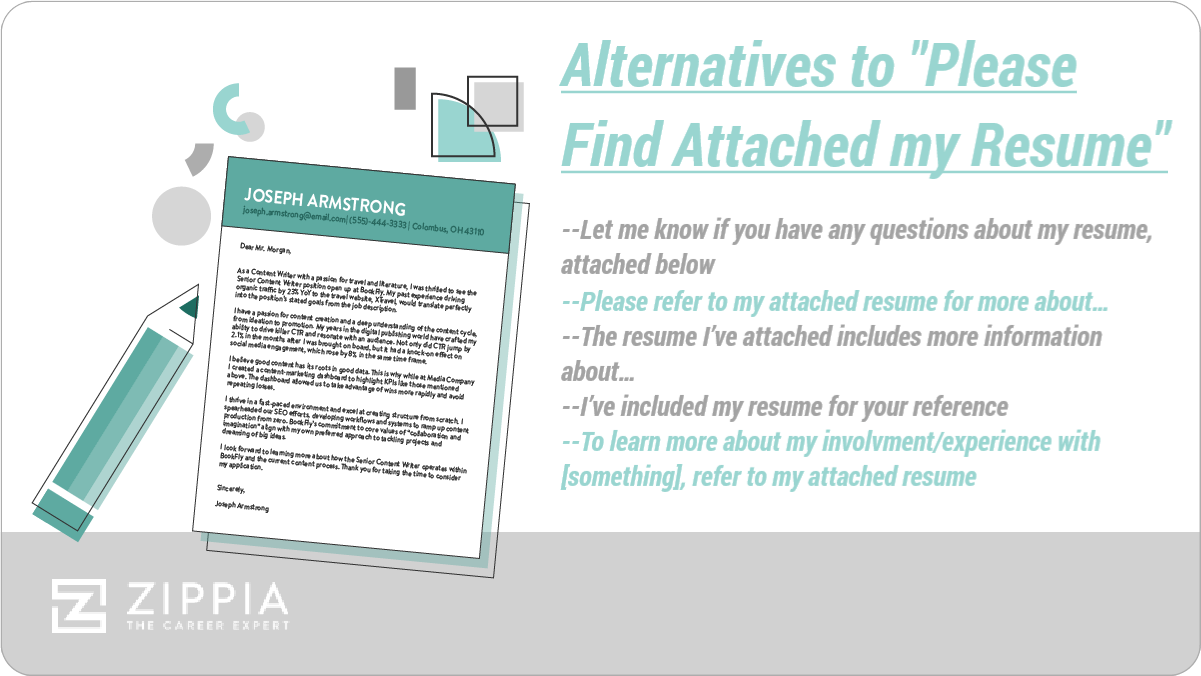- Application
- Email Communication
- Letter Communication
- Follow Up
- Job Application Tips
- About Me Page
- Answering Machine Messages
- What To Bring To A Job Fair
- Free Job Posting Sites
- Email Sign Offs
- Job Scams
- How Long Does It Take To Become A Doctor
- How Long Does It Take To Become A Vet
- Government Programs That Help Felons Get Jobs
- How Long Does It Take To Become A Dentist
- Relocation
- Job Search Spreadsheet
- Right To Work States
- How To Research A Company
- How To Change Careers
- What To Do If You Have No References
- Working For a Big Company Vs. A Small Company
- Writing Sample Format
- How Long Should A Writing Sample Be
- How To Get A Job Fast
- How Many Jobs Should I Apply For
- Military Requirements
Find a Job You Really Want In
You’re ready to hit the bricks, as they say, and start looking for a new job. The first question is, how many job applications should you send per day? or how many jobs do you have to apply to before you get a good job offer? Interesting question because the answer varies.
How Many Job Applications Should You Submit Each Day
There is a rule of thumb when it comes to applying for jobs, and that is that you should apply for two to three jobs per day. That’s a pretty simplistic answer and definitely doesn’t consider individual circumstances.
Let’s look at the professional side of things. A rocket scientist is clearly not going to apply to as many jobs as a retail clerk is. The rocket science market is pretty limited, and there aren’t even that many jobs out there for them.
A retail clerk, on the other hand, has a huge amount of jobs to choose from, so sending out a ton of applications would bring in a ton of offers.
That brings up another interesting point, how many job offers do you want to navigate, and how many jobs are you really going to consider. You want to make sure you’re applying to jobs that you really want, and that fit your pay, benefits, compensation, and career goals.
Applying to jobs that you don’t really want or jobs you’re not qualified for isn’t doing you any favors.
So, let’s stick with the rule of thumb that sending out two to three job applications is a good idea, but that can depend on certain considerations.
Considerations for How Many Job Applications to Submit
We touched on it above, but there are certain considerations that are important when you’re applying for jobs. These considerations can dictate how many applications you submit, how often, what you submit, etc. So, let’s take a look.
-
Your profession. Some people have very specialized professions, and there aren’t that many jobs available to them. That is if they plan on staying in the same career field.
Some professions have job openings just about everywhere you turn, so there are many more opportunities and more chances to find something that really fits your interests and career plans.
-
Amount of competition. If you’re competing with a lot of people for a job, you may want to flood the market initially with job applications and then slow down your pace as your applications are considered. You don’t want to fall behind as you pick only a couple of jobs to apply to each day.
-
Education level. Some people at the higher end of the education spectrum don’t need to apply to as many jobs as people with no education past high school or even those with bachelor’s degrees mainly because the competition isn’t as vast, so you can be more methodical in your search.
-
How long you’ve been looking. If you’ve been searching for a job for a long time, it might be time to change your approach and begin applying to everything that interests you just to see if you can get an offer.
-
Your financial situation. If you have the time to look for the ideal job, then why not take advantage of that. If you’re still working, this is a great time to look for the best job. If you have considerable savings, you can also slow down the search and only apply for the jobs that strike you as perfect.
-
How many jobs do you want? Guess what; there are a lot of people who enjoy having more than one job at a time. These people should send two to three applications daily for every job they’re interested in.
Benefits of Submitting Many Applications
There are upsides and downsides to submitting many applications. Because it’s so easy to apply for jobs online, it might be tempting to flood the market with your resume and job applications. Let’s look at why and how this might be the best idea.
-
More chances. The more jobs you apply for, the greater your chance of being offered a job is.
-
You get to pick. Rather than being stuck with the one job that was offered to you, if you apply for many, you might get to pick and choose which one you really want.
-
Bidding war. It’s rare, but some people end up being the subject of a bidding war between companies, and they can use the different offers to get in the best professional situation possible.
-
Gathering information. Interestingly, the more jobs you peruse and apply for, the more you’re learning about your industry and what people are seeking. This can help you hone your application and even master the job interview.
-
Perfect your application. There is no doubt that the first application you send out is not going to be the same as the 50th. This is because as people submit their applications, they tend to tweak them and make them a little better.
-
Speed. If you need a job as soon as possible, submitting more applications can speed up the process and helps you secure employment faster.
Disadvantages of Submitting Many Applications
So, if submitting many applications gets you a lot of options and a job more quickly, what could be the disadvantages? Well, there are some you should take a look at.
-
Too many offers. If you are applying for everything out there, you might get a lot of offers, and you need to reject all of the ones you don’t want, which can take time and be tedious.
-
Not the right job. Again, submitting to jobs indiscriminately might give you an offer that you jump at, only to discover a better and more appealing offer comes in too late.
-
Multiple applications. A lot of hiring managers and recruiters use more than one job service, like Zippia, to find applicants. Most applicants also use more than one service, so you could be applying for the same job multiple times.
Worse yet, you could be applying for multiple jobs within one company, and that can be a turnoff for hiring managers.
-
Burnout. The reality of the situation is that there will be many applicants for every position, sometimes thousands. This means you’re going to get rejected – a lot.
This gets depressing, even to the most optimistic of souls. And it can be depressing even if you really didn’t want the job because being told many times that someone doesn’t want you still is a bummer.
Tips for Submitting Job Applications
So, the answer on how many job applications to submit is somewhere between two to three a day or around ten a week. But that’s not the golden ticket to employment. The real key is to have a quality application. It’s not about quantity.
The following job application tips will help you create a quality application that people want to look at and learn more about the person behind it. It’s how you get the job.
-
Create a resume. Not all applications require a resume, but every single job applicant should have one. If you’re ever asked for it, then you should be ready to submit it at a go. But more importantly than that, it’s a good exercise, and it prepares you for the application process.
-
Focus on keywords. This might sound strange, but did you know that most applications are seen by a computer before they’re ever turned over to humans. These computer programs search resumes for keywords and put those that have them in the “keep” pile.
So, if the job is for an accountant, you better have the word accountant in your application. You probably also want to include accounting, finance, diploma, bachelors, etc. Don’t let these important keywords ruin your chances of ever being considered.
-
Highlight successes. Whenever possible, point out your career successes and use examples, statistics, or facts to nail them. These are the little things that help you stand out.
-
Customize. Each application should be customized for the job listing. It’s too easy to click send and use the same resume, cover letter, and application over and over.
It’s also very easy for a recruiter to toss all of your information out because it doesn’t apply specifically to their opening. Don’t let laziness cost you a job.
-
Be ready. Have all of the information you need to apply for a job ready for you to access. Some jobs are opened for applications and then closed that same day. That’s how fast the market is moving these days.
That means the minute you see a listing for your perfect job; you need to be able to apply for it and not waste time collecting references and supplemental data.
-
Know your industry. If your industry requires specific information or supplemental data, then give it to them. You’ll instantly seem ahead of the curve and the competition if you can give them what they want before they ask for it.
-
Milk your connections. If you know anyone at the company you want to work at, don’t rely on your application alone; ask that person if they’ll put in a good word for you or connect you to the hiring manager. It’s quite often who you know that means the most when it comes to getting a job.
Final Thoughts
The short answer to the question of how many job applications do I need to submit a day is two to three. Of course, that answer doesn’t always apply, and there are some special considerations to look at before you start throwing resumes everywhere.
Speaking of throwing resumes and job applications into the wind, there are some benefits to going scattershot and applying for everything you see. There are also some downfalls. You need to look at your individual situation to determine if more or fewer job applications are the right approach for you.
Finally, making your application stand out, thorough, accurate, error-free, and at the ready is essential. You can’t expect to get the best jobs if you’re only putting half effort into applying.
If you’re not going to put a quality application out there, then it doesn’t matter how many jobs you apply for; you’re not going to be considered for the better ones. Quality over quantity is the most important takeaway in this situation.
- Application
- Email Communication
- Letter Communication
- Follow Up
- Job Application Tips
- About Me Page
- Answering Machine Messages
- What To Bring To A Job Fair
- Free Job Posting Sites
- Email Sign Offs
- Job Scams
- How Long Does It Take To Become A Doctor
- How Long Does It Take To Become A Vet
- Government Programs That Help Felons Get Jobs
- How Long Does It Take To Become A Dentist
- Relocation
- Job Search Spreadsheet
- Right To Work States
- How To Research A Company
- How To Change Careers
- What To Do If You Have No References
- Working For a Big Company Vs. A Small Company
- Writing Sample Format
- How Long Should A Writing Sample Be
- How To Get A Job Fast
- How Many Jobs Should I Apply For
- Military Requirements





